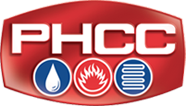Why Do Summertime HVAC Issues Occur?
 As temperatures continue to rise and we experience more humid days, you’ve likely turned on your air conditioning full-time.
As temperatures continue to rise and we experience more humid days, you’ve likely turned on your air conditioning full-time.
During the dog days of summer, you expect a blast of artic air to cool your home, but it doesn’t always work out that way. Instead, rooms feel muggy or the air doesn’t seem to be circulating.
If you haven’t used your air conditioner regularly since early fall, the system could have clogged filters or need maintenance. Here are a few common summertime HVAC issues and how you can address them.
Limited A/C Airflow
Reduced or limited airflow indicates your HVAC system is not operating with efficiency to cool your home. A few factors may be at play:
- Clogged Ductwork or Old Filter: When your air conditioner is being used regularly, the filter should be changed at least once a month. If you haven’t done this since last year, the system is likely still harboring debris from fall. Similarly, particles that have traveled into the ductwork may also be restricting how well air circulates.
- Outdoor Debris and Vegetation: Primarily concerning the condenser’s performance, grass and leaves can become trapped in your system, while vegetation can grow around the unit. In turn, heat builds up inside and the filters and coils quickly collect debris. These factors not only restrict airflow but also cause the system to overheat, forcing the blower and motor to work harder. As a result, more energy is consumed without fully cooling your home.
To avoid these issues, consider having your outdoor unit cleaned at the start of the season and check periodically for debris or overgrown vegetation.
Clogged Drain Lines
Dirt, debris and insects can clog your air conditioner’s drain lines. When condensation builds up, the drain lines are supposed to help divert it away. If a clog forms, the air conditioner can start to leak or your home continues to feel humid. Although you may be able to unclog the drain line yourself, an HVAC professional is often needed for a more thorough cleaning.
Low Refrigerant
Refrigerant is another factor influencing how well your air conditioner cools. Yet, leaks along the lines and coils cause this fluid to gradually seep out. Oftentimes, the leaks themselves are barely noticeable and a natural part of wear and tear.
When this occurs, the air conditioner has a harder time reaching the desired temperature and often consumes more energy in the process. In turn, your energy bills will likely go up, your system risks a breakdown, and the air in your home still feels warm.
At this point, have an HVAC technician seal the leaks so they don’t worsen, replenish the system’s refrigerant and ensure the air conditioner is operating efficiently.
Compressor or Capacitor Failure
When air conditioner problems persist without being addressed in a timely manner, you waste energy and risk the system experiencing compressor failure. This often occurs when the air conditioner is not receiving enough refrigerant, has restricted airflow or is experiencing an electrical issue. In turn, the compressor has to work harder, may overheat and risks breaking down.
On the other hand, the issue might start with the capacitor, which holds onto and provides the compressor with energy, helping to power its fans. After the capacitor affects the fans and compressor, other parts within the system won’t be able to perform up to par.
If your air conditioner is not fully cooling your home or you spot leaks, reach out to MJ Fahy & Sons to address the issue. Schedule an A/C unit inspection today.




